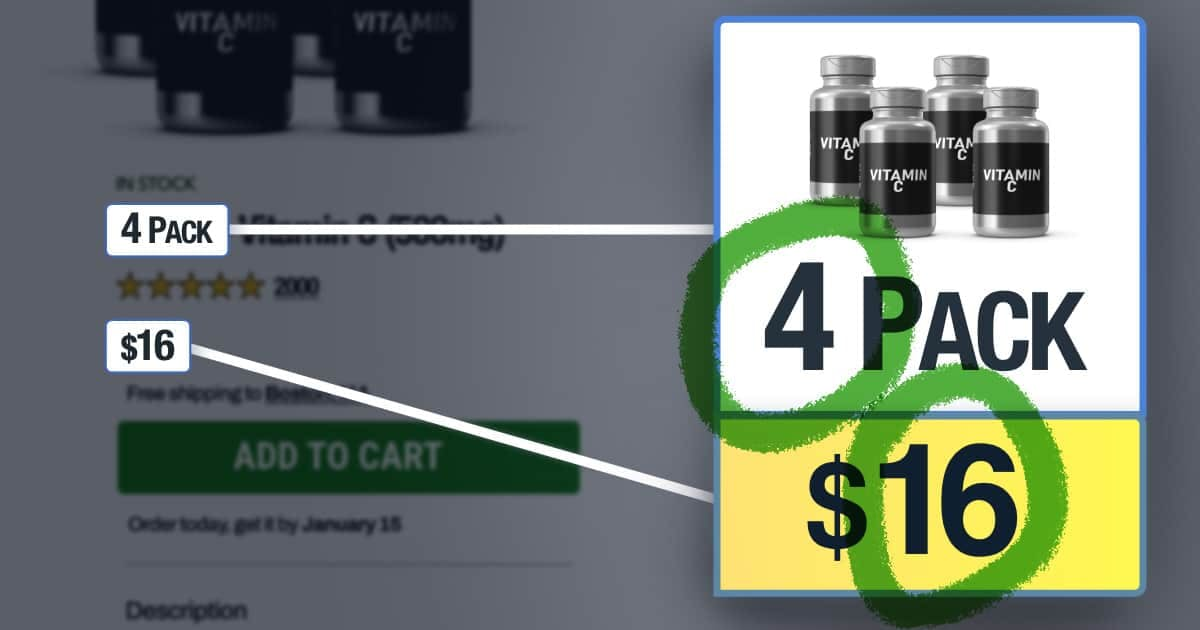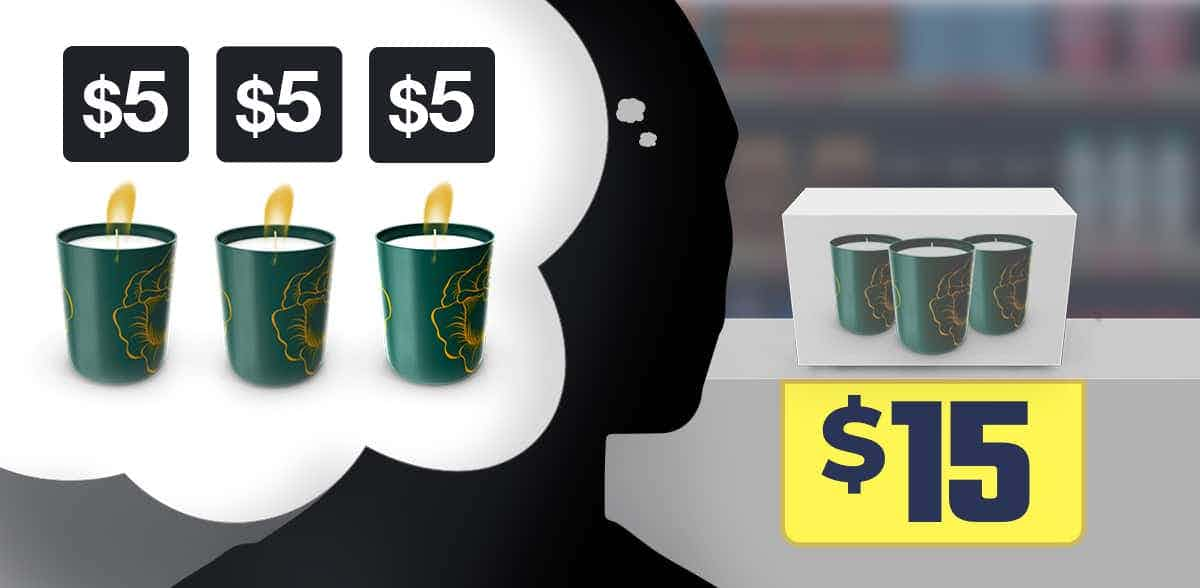Set Prices That Are Divisible By Purchase Quantities
Customers prefer prices that are divisible by the purchase quantity because it helps them imagine using these products.

Overview
Consider a 3-pack of candles for $15.
Each candle would cost $5. Pretty good, right?
But why not lower the price to $14.50? Wouldn't this unit price — less than $5 — be more appealing than $5?
Ironically, no. Researchers found a peculiar effect with bundles: Customers prefer bundles in which prices (e.g., $15) are divisible by the quantity (3-pack; Park, Kwon, & Bagchi, 2023).
In their studies, customers preferred:
- 4-pack of body wash for $16 (vs. $15.30)
- 6-pack of tissues for $18 (vs. $17)
- 8-pack of toothbrushes for $16 (vs. $15.41)
- 11-pack of cashews for $11 (vs. $10)
Why It Works
Divisibility creates a per unit price.
If customers see a 3-pack of candles for $15, they calculate $5 per candle.
This calculation shifts their attention from the bundle to the units. Customers imagine the candles as discrete items:

In turn, these discrete images help them imagine usage scenarios (e.g., one for the living room, one for the bathroom, one for the bedroom).
With no clear unit price from a $14.50 bundle, customers focus on the bundle itself. It's harder to imagine usage scenarios, and it feels less urgent to replenish these candles when you're imagining an abundance of them.
Takeaways:
- Adjust Prices or Quantities. Whichever can help you reach divisibility.
- Multiples of Prices Can Work Too. Similar effects happen with two multiples (e.g., 4 small pizzas with 6 toppings for $24; King, & Janiszewski, 2011).
- Charm Prices Might Work Best. Instead of $15.00, try $14.99. Customers might round up to $15 for divisibility, yet $14 would anchor a lower price for the bundle.
Other New Stuff
- Use Duration Prices That Are Easy to Multiply - Sometimes I see specific prices for durations, such as $63.46/hour or $13.45/month. But are they effective? This week's study might shed light. See my LinkedIn post which expands on this idea.